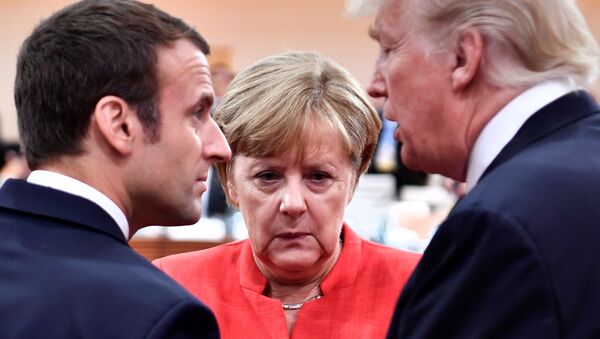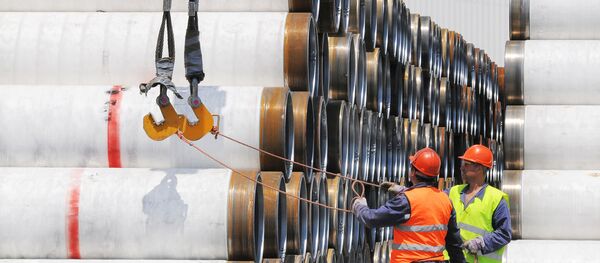On August 2, US President Donald Trump signed a bill imposing sweeping sanctions on Russia, Iran and North Korea. In particular, the anti-Russia sanctions target the country's defense and economic sectors, restrict dealings with Russian banks and energy companies, as well as counteract the construction of the Nord Stream 2 pipeline.
At the same time, Russian Energy Minister Alexander Novak said that the Nord Stream-2 gas pipeline project will be implemented on time, regardless of the new US law that expands sanctions against Moscow.
"Taking into account the fact that European countries are interested in gas supplies from Russia, including via the Nord Stream 2 pipeline, and given an increase in volumes of European consumption and a decline in the volume of their production, we are confident that the project will be implemented on time. At least for today, its implementation is underway," Novak said.
According to Meilhan, "the Americans have always tried to weaken ties between Europe and Russia.
"Thirty years ago, Ronald Reagan tried to prevent the construction of a Soviet gas pipeline to Europe," he recalled.
However, Russia remains the main supplier of gas and oil to Europe, he noted
"Russia will remain Europe's main supplier in the future. Some Americans think that US gas will be able to force Russian gas [out of the European market], but that's not the case," Meilhan said.
The new US sanctions are opposed by the European Commission and EU member states such as Germany, which fear that they will penalize European companies cooperating with Russian firms on energy projects, putting jobs at risk.
According to German foreign minister Sigmar Gabriel, the sanctions policy was not "an appropriate tool" for promoting one's national export interests or energy industry.




